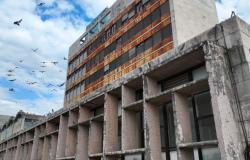Sunday 9.6.2024
/
Last update 9:36
By María del Mar Naughty Aja
The application of artificial intelligence (AI) is a palpable reality that is rapidly transforming medical practice. Currently, it is already used in many areas of diagnostic imaging.
Some examples are liver segmentation, radiological diagnosis of covid-19 or breast or lung cancer screening programs. What implications does this paradigm shift have?
Increase in diagnostic accuracy
For decades we have seen the difficulties that have occurred in our health system due to the lack of specialists. And radiologist doctors are among the most in demand.
Recent studies suggest that AI can significantly increase efficiency in the interpretation of medical images, which could revolutionize radiology services in the medium term.
See also
See also
The Right to Democracy
In addition to dramatically improving diagnoses and reducing wait times for patients, it can help radiologists identify complex or subtle patterns in images, improving early detection of disease and personalization of treatment plans.
For example, the application of this technology in mammograms improved the accuracy of breast cancer diagnosis by 15%. In chest x-rays, AI has increased sensitivity in detecting pneumonia, nodules and other conditions compared to radiologists who did not have its assistance.
A challenge
This will not only affect medical practice itself, but will lead specialists to assume a new role in diagnoses and treatments. Given this scenario, their training could require a significant adjustment and require significant investments in continuing education.
Instead of focusing on visual interpretation of images, they will likely need to acquire additional skills in data management, medical informatics, and interventional techniques such as biopsies and drainage. This can lead to them focusing on completing more complex tasks and making clinical decisions.
See also
See also
Democracy and its three powers
However, the current trend is for the number of workers to be reduced to the essential minimum. In this context, the widespread adoption of AI also opens the possibility that many specialists currently in training may not be needed in the future. That raises questions about the balance between technological advances and preserving jobs in the medical sector.
Additionally, over-reliance on AI can also create risks in terms of loss of clinical skills and professional judgment, which could negatively affect the quality of healthcare.
So does AI represent a real threat to the practice of radiology? Or, conversely, do the potential benefits for patients far outweigh the challenges posed by this paradigm shift?
See also
See also
Praise for madness?
Ethical and legal considerations
In addition to the employment implications, it is crucial to consider the ethical and legal aspects. The introduction of AI in the interpretation of medical images raises questions about liability for diagnostic errors and the protection of patient data privacy in an increasingly interconnected environment.
Who will take responsibility for these failures? Radiologists supervising AI work or service chiefs incorporating these technologies into their medical institutions?
Ultimately, the debate goes beyond the medical community and has profound implications for society as a whole. Because the improvements of AI in medicine should not make us forget social responsibility in the adoption of emerging technologies.
See also
See also
For communication in favor of encounter and promotion of peace
To fully realize the potential of AI, it is crucial to address these challenges by involving all relevant actors, from healthcare professionals to technology developers and policymakers.
Hired Teacher. Doctor of Radiology and Physical Medicine. Department of Clinical Sciences, University of Las Palmas de Gran Canaria. This article was originally published on The Conversation.
#Argentina






